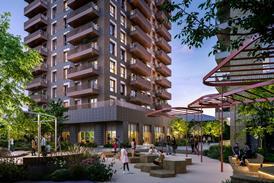- Home
- Intelligence for Architects
- Subscribe
- Jobs
- Events

2025 events calendar Explore now 
Keep up to date
Find out more
- Programmes
- CPD
- More from navigation items
RIBA says latest covid-19 package ‘doesn’t go far enough’

Institute seeks more support for smallest practices, planning system and on-site continuity
The RIBA welcomed chancellor Rishi Sunak’s £330bn package of support to help the UK economy deal with the covid-19 crisis, but has warned it does not go far enough.
Institute chief executive Alan Vallance said the aid boost – unveiled at today’s Downing Street briefing on the outbreak, and valued by Sunak at 15% of GDP – would not be sufficient to guarantee the survival of architecture’s smallest operators amid the rapidly escalating crisis.
“We welcome the government’s ‘unprecedented package’ of financial support during these unpredictable times, especially the extension of businesses eligible for loans,” he said.
“But more will be needed to support SMEs – most architecture practices – who are already feeling the pain of this pandemic.
…
This content is available to registered users | Already registered?Login here
You are not currently logged in.
To continue reading this story, sign up for free guest access
Existing Subscriber? LOGIN
REGISTER for free access on selected stories and sign up for email alerts. You get:
- Up to the minute architecture news from around the UK
- Breaking, daily and weekly e-newsletters
Subscribe to Building Design and you will benefit from:

- Unlimited news
- Reviews of the latest buildings from all corners of the world
- Technical studies
- Full access to all our online archives
- PLUS you will receive a digital copy of WA100 worth over £45
Subscribe now for unlimited access.






